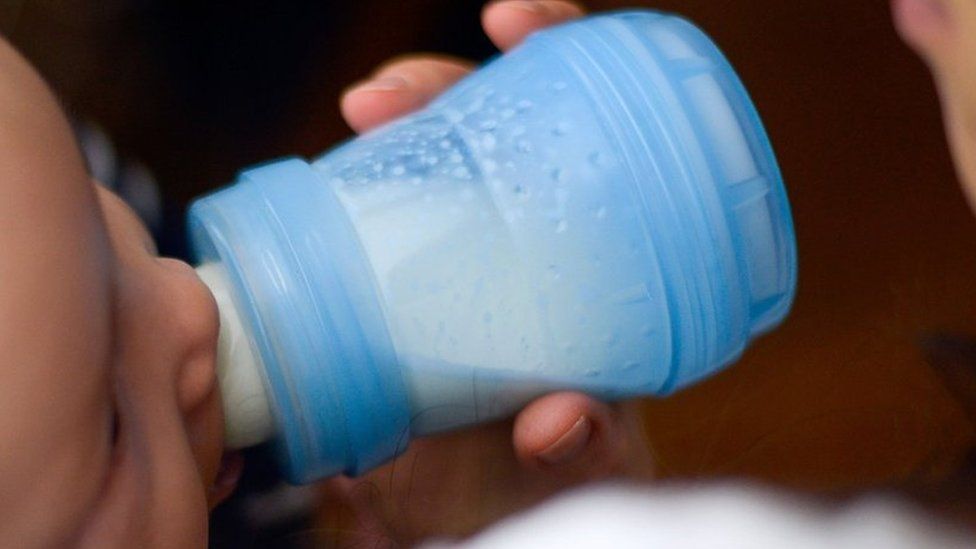2 hours ago
About sharing
Online adverts for the retailer Boots promoting four brands of infant formula on Google broke advertising rules, the watchdog has said.
In the UK, it is against the law to advertise infant formula for babies up to six months because it might discourage breastfeeding.
Boots apologised and said the adverts, which were automated, had been removed.
It comes as supermarket Iceland calls for changes to laws on formula milk advertising.
The BBC has contacted the Department for Business and Trade for comment.
Advertising follow-on formula, for babies over six months, is allowed.
But for infant formula, retailers cannot communicate special offers via any platform.
Iceland says it is calling on the government to “immediately” update existing legislation so that retailers are allowed to tell the public when they reduce the price of formula.
It is also asking for customers to be allowed to buy formula with loyalty points, gift cards or food bank vouchers, which is currently prohibited.
Iceland and other retailers have included formula products in offers and cut-price promotions but under the law have been unable to communicate this to customers.
Iceland’s executive chairman, Richard Walker, said that the supermarket went against these regulations, and got in touch with customers about the offers.
The BBC has asked the Advertising Standards Authority (ASA) for comment.
Iceland said it still endorsed breastfeeding, yet rising costs were “placing unbearable pressure on parents who choose to or have no alternative” to using formula milk.
However, breastfeeding support groups feel that supermarkets and other retailers are just interested in their profits rather than babies and mothers.
A spokesperson for the Baby Feeding Law Group said that these legal marketing restrictions are intended to protect parent and carers from “undue commercial influence”.
“There is a wealth of evidence that marketing undermines breastfeeding and safe and appropriate formula feeding. The regulations are not designed to limit access to infant formula, it is the manufacturers and retailers who set prices, and who do so in a manner which ensures high profit margins,” the group added.
Boots ruling
The ASA said the Boots adverts, which appeared on the sidebar on search engine websites like Google, clearly displayed “images of the infant formula products to mean that the ads were promoting infant formula”.
It ordered Boots to remove the adverts.
The adverts in question, paid for by Boots, were promoting four different branded formulas: Aptamil, Hipp, Cow & Gate and Kendamil.
Following the ASA ruling, Boots apologised and said it had removed all its infant formula advertising, saying that the adverts were automated, generated by an algorithm linked to the Boots website that promoted products on offer.
The law means that retailers cannot communicate special offers of infant formula via any platform.
The World Health Organization (WHO) recommends exclusively breastfeeding babies for the first six months and giving breast milk alongside solid food until the age of two or beyond.
The WHO has urged governments around the world to ban the advertising of infant formula as it feels it discourages breastfeeding.
